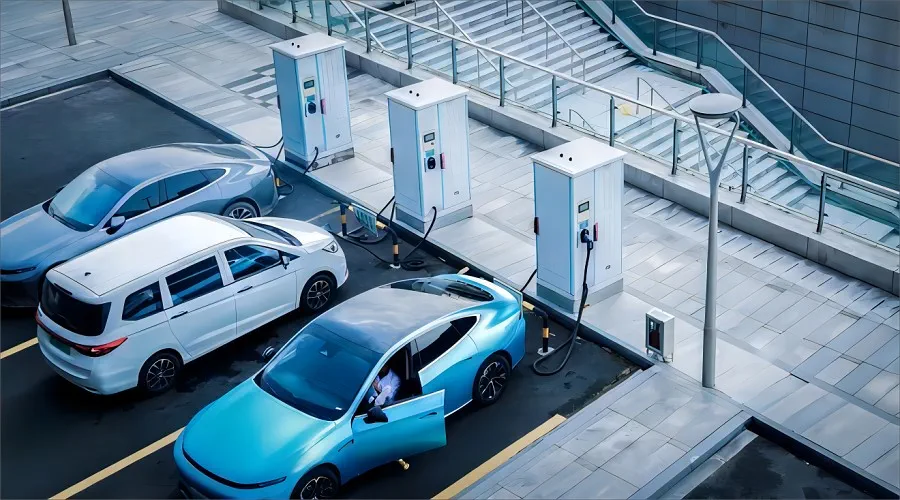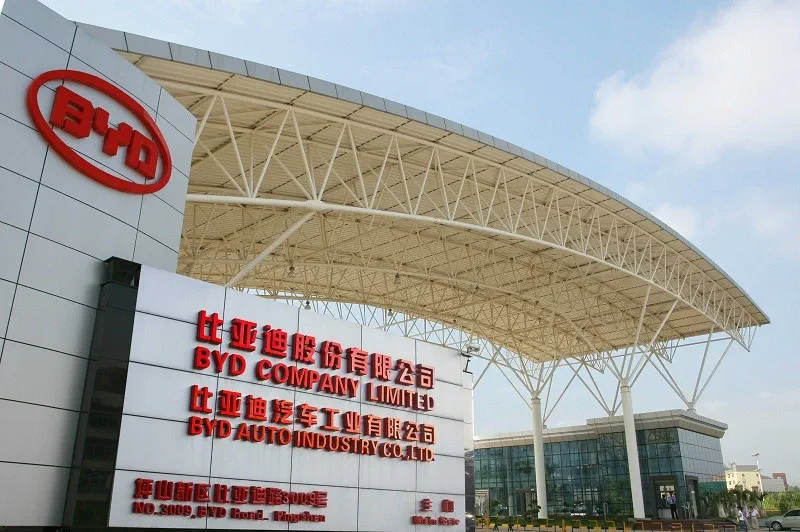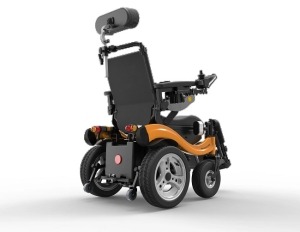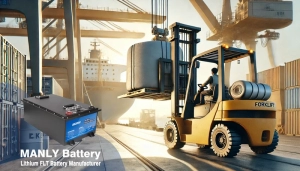En expansiónMercado de vehículos eléctricos: Fabricantes de automóviles chinos en Europa
Tabla de contenido
- Mercado de vehículos eléctricos en expansión: fabricantes de automóviles chinos en Europa
- Horizontes en expansión: el impacto económico de las fábricas de automóviles chinas en Europa
- Rising Tide: The Growth of China's New Energy Vehicle Exports
- Navegando en alta mar: abordar los desafíos logísticos de las exportaciones de vehículos de nueva energía
- Trailblazers and Pioneers: The Evolution and Future of China's Auto Industry
- Historias de éxito de expansión global: fabricantes de automóviles chinos en el extranjero
- Conclusión
- Más información sobre la batería

Horizontes en expansión: el impacto económico de las fábricas de automóviles chinas en Europa
Establishing manufacturing facilities in Europe offers significant benefits for Chinese automobile companies, especially those in the electric vehicle industry. This move not only aids in overcoming logistical challenges and trade barriers but also improves market access and consumer perception, crucial for companies like BYD and others in the new energy vehicles sector.Impacto económico: creación de empleo y oportunidades de inversión localThe decision to set up factories in Europe, such as BYD's consideration of a location in France, directly translates into job creation and boosts local economies through substantial investments. When a major player in the electric vehicle market like BYD establishes a manufacturing base, it injects millions into the economy, not just through the construction of the facility but also via ongoing operations and maintenance. For instance, the investment often involves building infrastructure, purchasing local materials, and employing a local workforce, which significantly reduces unemployment and improves the standard of living in the region.Acceso a los mercados: superación de barreras comerciales y medidas proteccionistasLos mercados europeos son conocidos por sus estrictas políticas comerciales y medidas de protección, particularmente hacia el sector automotriz. Al establecer instalaciones de producción locales, las empresas chinas pueden evitar los altos aranceles y las barreras no arancelarias que normalmente se aplican a las importaciones. Este movimiento estratégico permite a las empresas vender sus automóviles más fácilmente dentro de la Unión Europea, alineándose con los acuerdos y regulaciones comerciales, mejorando así la presencia en el mercado de las exportaciones de vehículos de nuevas energías desde China.Percepción del consumidor: mejora de la imagen de marca y la aceptación del productoLa fabricación local también desempeña un papel fundamental en el cambio de las percepciones de los consumidores. Los consumidores europeos tienden a confiar más en los productos fabricados localmente, lo que puede mejorar significativamente la imagen de marca y la aceptación de los vehículos chinos de nueva energía. Una fábrica en Europa significa que marcas chinas como BYD pueden comercializar sus vehículos como producidos localmente, lo que no sólo se alinea con los valores europeos de sostenibilidad sino que también reduce el impacto ambiental asociado con el envío de vehículos a larga distancia.Rising Tide: The Growth of China's Exportaciones de vehículos de nueva energía
China has emerged as the world's leading exporter of automobiles, with new energy vehicle exports playing an increasingly pivotal role in this dominance. This growth not only underscores China's rising influence in the electric vehicle market but also brings to light the complex challenges related to logistics and shipping capacities.China as the World's Largest Car ExporterIn recent years, China has surpassed other nations to become the largest car exporter globally. The country's automotive industry has evolved rapidly, transitioning from producing primarily for domestic consumption to becoming a major player in the international market. This shift is driven by substantial investments in automotive technology, particularly in the electric vehicle industry, where China is seen as a frontrunner.Tendencias y estadísticas en las exportaciones de vehículos de nuevas energíasThe surge in exports is most notable in the sector of new energy vehicles (NEVs). These vehicles, which include hybrids and fully electric cars, have seen a dramatic increase in demand worldwide, especially in Western Europe. In 2023 alone, companies like BYD reported exporting over 243,000 units, marking a significant milestone in China's automotive export history. This uptick is aligned with global shifts towards greener, more sustainable vehicle options, positioning Chinese NEVs as both competitive and desirable in the international market.Desafíos logísticos y capacidades de envíoHowever, the increase in exports has not come without its challenges. The logistics of shipping large volumes of vehicles across continents are daunting. One poignant example is the situation with BYD's Explorer No.1, the first roll-on/roll-off ship deployed by BYD, which set sail on January 16, 2023, carrying 5,449 NEVs from the Shenshan Xiaomo International Logistics Port to Europe. Despite its large capacity, the Explorer No.1 represents just a fraction of BYD's shipping needs. Given the ship's 40+ days travel time to Europe and back, the current fleet is insufficient to meet the growing demand. This has highlighted a critical bottleneck in the global roll-on/roll-off ship availability, exacerbated by years of underinvestment in this specific type of maritime infrastructure.Respuesta global y ajustes estratégicosLa escasez de opciones de envío ha llevado a los fabricantes de automóviles chinos a repensar sus estrategias de exportación. Más allá de aumentar las capacidades marítimas, existe un giro estratégico hacia el establecimiento de bases de fabricación en mercados clave como Europa. Esto no sólo evita los desafíos logísticos, sino que también se alinea con acuerdos comerciales que favorecen los productos fabricados localmente, mejorando así el acceso al mercado y la percepción del consumidor.




















